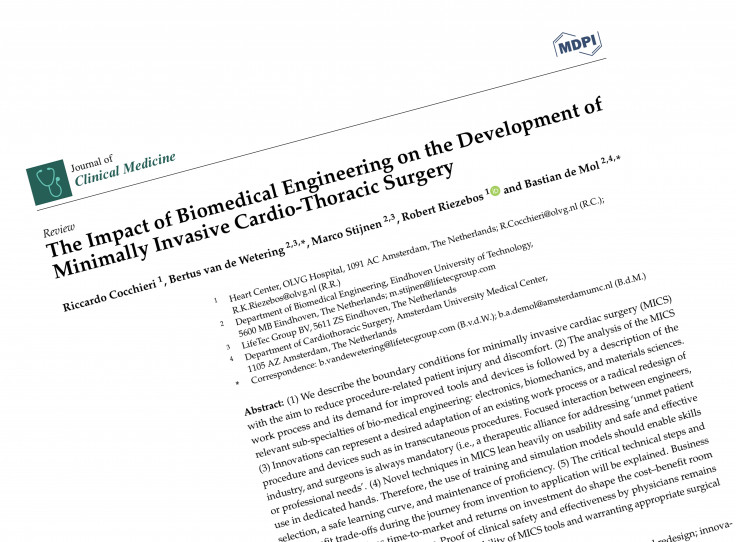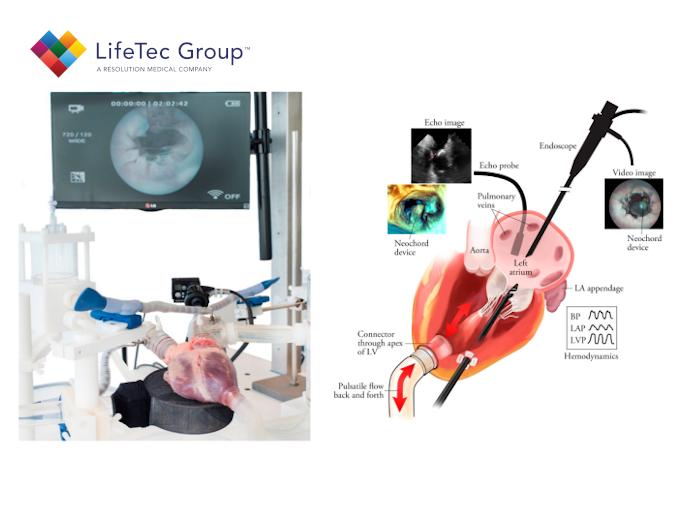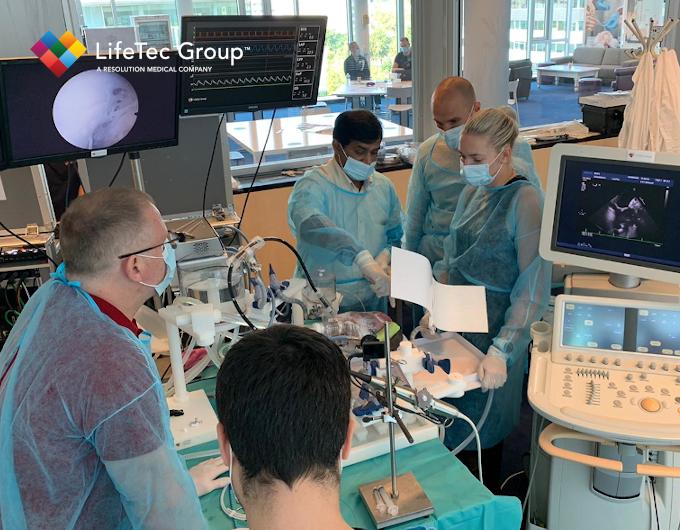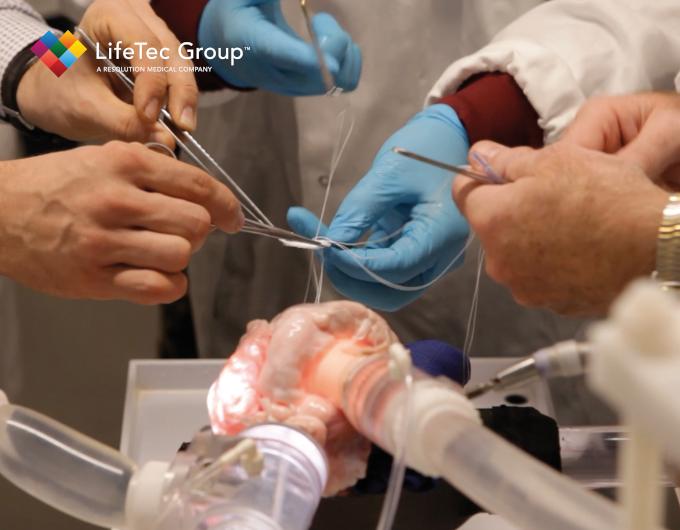Engineering in Clinical Practise
LifeTec Group is very happy with the opportunity to have an impact on the role of biomedical engineering on the developments within the field of minimally invasive cardiac surgery. Together with respected clinicians and experts in the field of cardio-thoracic surgery, our team wrote a comprehensive review about the current state-of-the-art and future perspectives on this topic, published in the Journal of Clinical Medicine (August 2021). Facilitating a bridge between biomedical engineering and clinical applications is one of our main goals and therefore we are excited about our newest publication.

Cardiac Surgery
While pursuing the goal of reducing tissue injury, blood-loss and post-operative recovery times, minimally-invasive cardiac surgery (MICS) is becoming more and more practiced worldwide. However, MICS still is considered to be the exception rather than the rule in contrast with many other areas of general surgery because the majority of cardiac surgeons are still trained for the major-invasive approaches, while skills and competence in MICS and surgery-by-wire are considered to be an additional area of expertise. Guided by developments within the field of biomedical engineering, cardiac surgeons keep exploring more difficult access routes to the heart and other thoracic structures to reduce preventable tissue damage and blood-loss, resulting in ongoing developments of MICS techniques.

Climbing the learning curve
Ranging from imaging techniques to material engineering and from biomechanics to computational fluid modeling, biomedical engineering contributes to MICS-developments in many ways. Several disciplines within this field are also part of LifeTec Group’s portfolio, like computational modeling and realistic and clinically relevant testing of heart valve mechanics and their implantation procedures. Next to these typical tool developments and device characterization, biomedical engineering also helps cardiac surgeons to climb the steep learning curve of getting to grips with new technology. Reliable cardiac simulators with realistic haptic tissue feedback can help during training of a cardiac surgeon, development of surgical or cardiological devices and procedures or in selecting the most-skilled operators.

What's in it for you?
LifeTec Group’s Cardiac Biosimulator (CBS) can provide you with a realistic, relevant and fully controllable cardiac simulator environment for R&D or training purposes. Using our biomedical engineering skills to the fullest, we are there to help you during your process of making your concept into a product that is ready for the market. We have a strong believe that (start-up) companies that are aiming to develop a cardiac device can really benefit from biomedical engineering.
Does this sound interesting for you? Do not hesitate to reach out if you want more information about what services we can offer you!

Cocchieri, R., Van De Wetering, B., Stijnen, M., Riezebos, R. K., & De Mol, B. A. (2021). The impact of biomedical engineering on the development of minimally Invasive Cardio-Thoracic Surgery. Journal of Clinical Medicine, 10(17), 3877. https://doi.org/10.3390/jcm10173877
Interested in more about what we do at LifeTec Group? Contact us!
Call at +31 40 2989393 Or e-mail us
